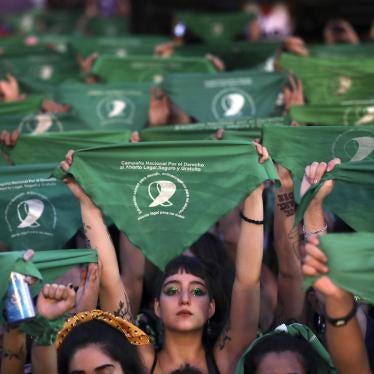On Jan. 28 in Lima, Peru, 27 people were killed and at least five others critically injured by a fire that swept through Christ is Love, a privately run drug rehabilitation facility. Patients were trapped behind locked doors and barred windows. Witnesses said patients started the fire in an effort to escape, after a caretaker refused to release them. Firemen on the scene reported terrible overcrowding -- up to 70 people, 18 to a room, in a facility equipped for 12.
Who would blame them for trying to escape?
At Christ is Love there apparently was neither treatment nor much love. Instead, there was quite a lot of brimstone, and finally, fire. "Patients" could not leave or communicate with their families. It is unclear what "treatment" consisted of, except that that it was "Bible based"-- no doctors, no psychologists, and certainly no proven, effective addiction treatment. The facility was one of hundreds of similar unlicensed, unmonitored places described as "prisons for drug addicts" by one treatment specialist.
International health and drug-control agencies -- including the UN Office on Drugs and Crime, UNAIDS, and the World Health Organization -- and human rights monitors -- all endorse comprehensive, evidence-based (meaning proven effective) drug dependence treatment services as essential to protect the health and human rights of people who use drugs. They also agree that is important -- both for human rights and treatment effectiveness -- that people have the right to choose whether to use these services.
José Luis Pérez Guadalupe, chief of Peru's National Prison Institute, stated after the fire that drug rehabilitation centers must not deprive patients of their liberty, because that would be kidnapping.
Nonetheless, Peruvian law permits forced detention for treatment. Peru's Civil Code permits family members of people who are dependent on drugs or alcohol -- and in some cases the government -- to seek court orders appointing them as guardians, stripping the person of his or her legal capacity through a legal process called judicial interdiction. Legal guardians of those interdicted can "volunteer" their admission for drug or alcohol treatment and rehabilitation without their consultation or consent. Peruvian Law No. 29765, which governs therapeutic communities, specifically authorizes legal guardians of those interdicted and of minors to seek admission for treatment; treatment can also be required by judicial order.
Until recently, Peru's health law, No. 26842, prohibited involuntary treatment except in cases of emergency, or where authorized by legal guardians. In July, however, the law was amended to permit family members to authorize detention for people suffering from "mental health problems," defined to include those "who suffer some level of addiction and due to lack of consciousness or responsibility of their illness, refuse to give informed consent." In such cases, involuntary detention is subject to periodic review by health professionals and by a judge.
The Public Ombudsman has raised concerns that this recent amendment [Law No. 29737] violates the Peruvian Constitution, as well as international and regional human rights treaties, and urged its repeal. The Ombudsman noted that the Constitution permits involuntary detention for treatment of people suffering from addiction only in exceptional cases, including threats to life or safety of the person or others; judicial interdiction due to "mental disorders," and judicially ordered security measures for intentional crimes.
But even beyond addressing the ombudsman's specific concern about the recent amendment, Peru should take additional measures to ensure that drug treatment for people dependent on drugs or alcohol is provided only with free, informed consent. Compulsory detention should occur only in exceptional crisis situations, for specific periods of time, with appropriate conditions of detention, scientifically and medically appropriate treatment, and independent oversight.
The Public Ombudsman has pledged to investigate conditions at Christ is Love. The local government of Miraflores (Lima), together with the attorney general and the Ministry of Health of South Lima, has recently closed two unlicensed centers, and is continuing its inspections this week.
These are important efforts. But Peru has legal obligations to ensure that no one is subject to forced detention in the name of addiction or "mental health" treatment in violation of international standards. Congress should approve proposed laws abolishing the recent amendments. The government should also take immediate action to end interdiction of drug users and support them in making their own decisions about treatment.
Until Peru closes down all forced drug rehabilitation facilities and establishes voluntary, effective drug treatment in their place, desperate people and families will turn to unlicensed treatment centers providing inadequate care. Drug addiction can be a torment to those addicted and the families affected. The answer, however, isn't to lock up drug users and hope for a miracle. Providing effective treatment can be an expression of love. Locking people dependent on drugs in overcrowded cells and letting them die by fire sounds a lot more like hell.
Rebecca Schleifer is the Advocacy Director in the Health and Human Rights Division at Human Rights Watch.






